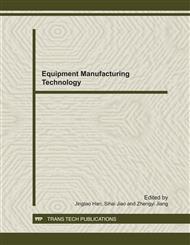p.87
p.91
p.96
p.102
p.107
p.113
p.117
p.122
p.127
Study of EPS Hall-Effect Torque Sensor Technology
Abstract:
In an electric power steering (EPS) system, it is important to make a precise and reliable measurement of the torque on the steering wheel. A non-contact torque sensor has been developed for EPS system. The sensor is based on a magnetic principle that the magnetic flux path is changed with the torsion of a torsion bar which is placed in the steering shaft. The change of magnetic flux density in the working airgap is detected by a standard Hall-effect IC. The sensor has broad prospects for its good performance, simple structure and low cost. This paper introduces the torque sensor’s working principle, analyzes the magnetic circuit by 3D simulation, and concludes its key technologies and development trends.
Info:
Periodical:
Pages:
107-112
DOI:
Citation:
Online since:
December 2011
Authors:
Keywords:
Price:
Сopyright:
© 2012 Trans Tech Publications Ltd. All Rights Reserved
Share:
Citation:


